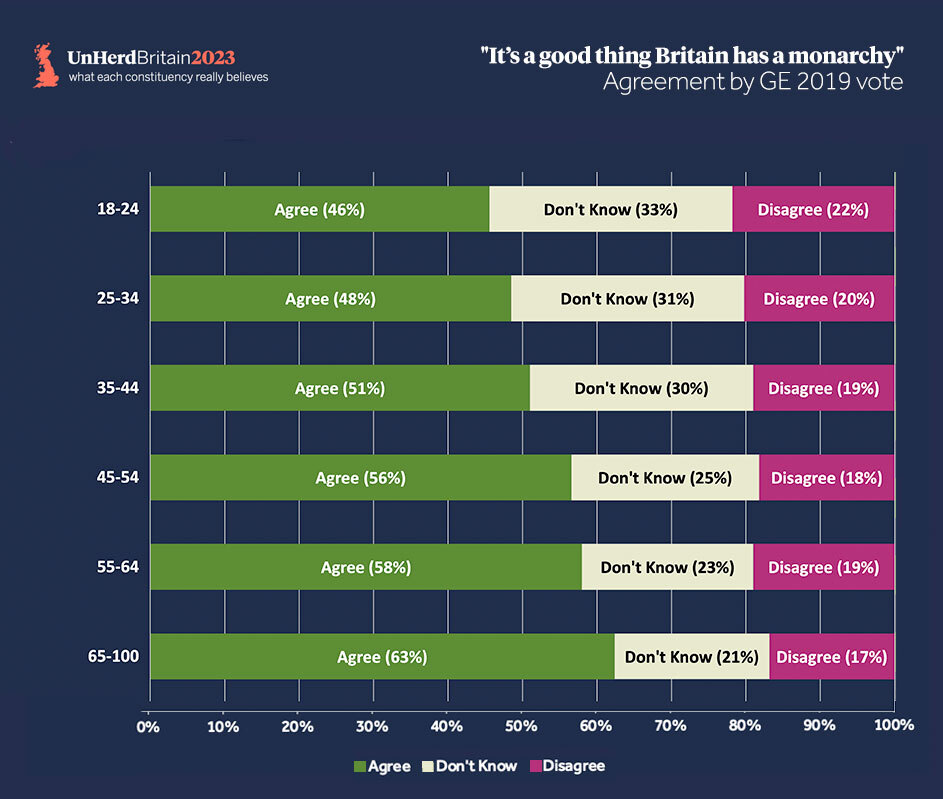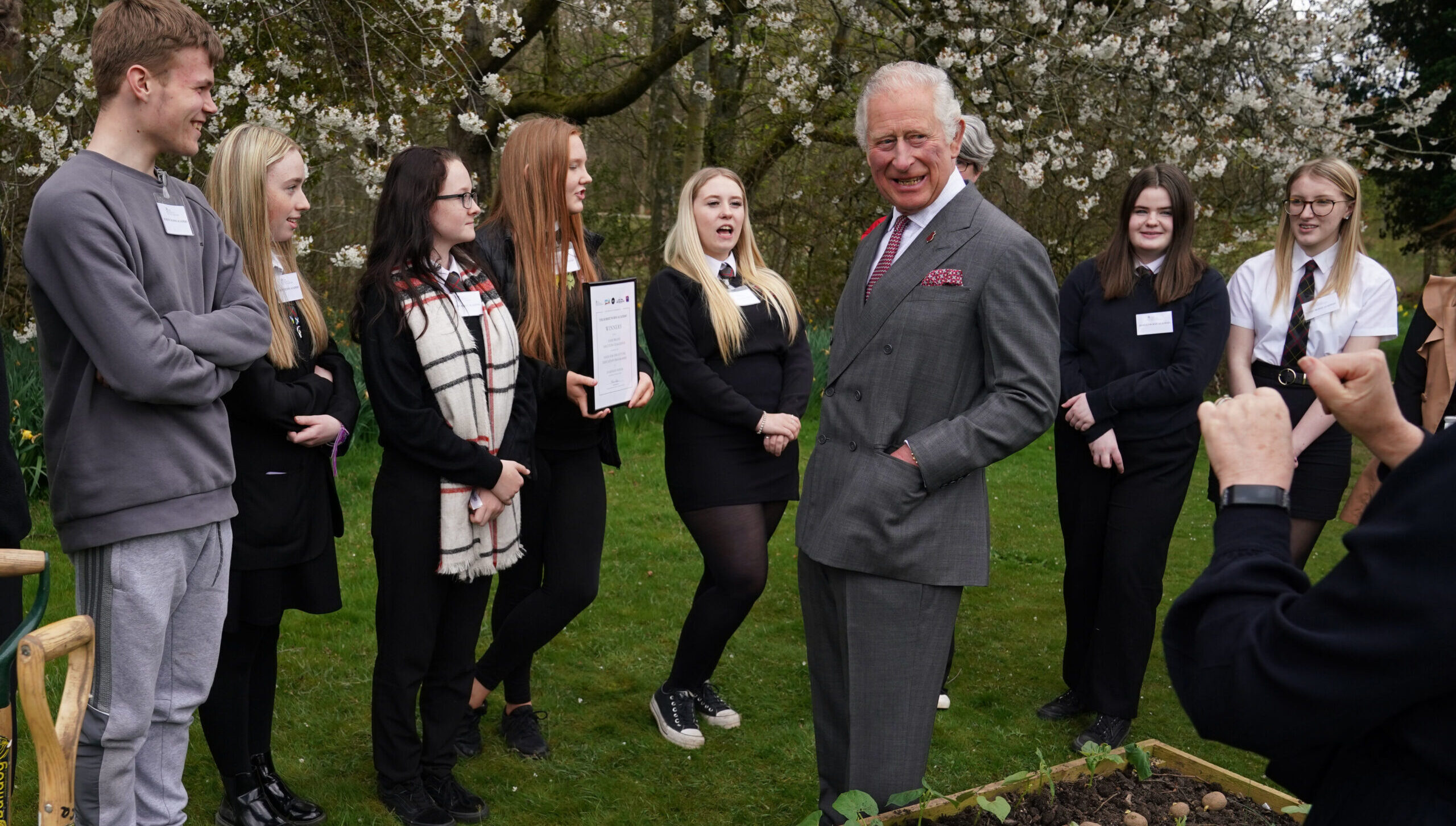Almost half of young people believe that “it’s a good thing Britain has a monarchy”, the latest UnHerd Britain data has revealed. Of those between the ages of 18 and 24 who were surveyed, 19% were in strong agreement with the statement, and 27% in mild agreement. Of the remaining half, the majority expressed indifference, with only 10% strongly disagreeing. Coming from a generation whose loudest voices seem intent on damning all of Britain’s public institutions and what they represent, these statistics might come as something of a surprise.
Of course, compared to older generations, the 18-24s are still the least supportive of the monarchy overall. The data shows a steady increase in enthusiasm with each older generation: a quarter of 35-44s strongly agreed, a third of 55-64s, and so on. This is as expected, given that they grew up in a culture which unequivocally saw the monarchy as integral to British identity, with the feeling of national unity surrounding the late Queen’s Coronation still in living memory. The same cannot be said for Generation Z and millennials. And yet, among these demographics, those against the monarchy are in a minority. Why might this be?
One explanation emerges if we view this data alongside a major trend among young people: their increasing disillusionment with democratic politics. Among Gen-Xers and boomers, the biggest argument against the monarchy — or at least the one most repeated by republicans — is that it is “undemocratic”, which for them is necessarily a bad thing. For younger generations, however, such an attitude is no longer axiomatic. As a recent report by the think tank Onward found, today’s youth are more sceptical than ever towards democracy. They feel it is no longer fit for purpose, and have lost faith in its power to represent their values — or indeed, any values at all. Indeed, the report shows that 60% of the 18-24 group agree that “having a strong leader who does not have to bother with Parliament or elections” is a good way to run the country.

For many young people, modern democracy has come to feel like a spectacle, devoid of the significance it once had for their parents and grandparents. In a world dominated by the powers of international capitalism and technology, democracy’s ability to serve the interests of ordinary people seems ever more limited. Instead, politics itself seems now to be determined by “anonymous forces” whose intentions cannot be trusted, with many believing that corporations, the media and lobbyists have the most influence over policy. In other words, they feel that democracy has lost its “authenticity”, rendering it inherently suspect.
How might this affect their views on monarchy? Although many young people are likely to view the monarchy as suspect in other ways (for example, in its ties to colonialism), it might be plausible that royalty — in constituting an unchanging set of rites, symbols and values — appeals to them precisely because it sits above the chaos and confusion of modern politics, representing a form of authenticity that is otherwise non-existent in public life. In this context, the fact that Britain has an unelected head of state may even reassure them, for it guarantees that he is free from the perceived corruption of current elective processes.
In a similar vein, it may be that the pomp and splendour of the monarchy — however much it has been criticised by young people as unsympathetic to the cost of living crisis — provides a relief from the grey, uninspiring character of bureaucratic society. This is not just a matter of aesthetics: being imbued with sacral power, the monarchy is one of the last remnants of an enchanted world, which young people may come to yearn for in an age of secular materialism. It may be, then, that 46% of them agree that the monarchy is a good thing precisely because it is removed from the mores of modern life, and above the empty spectacle of politics.










Join the discussion
Join like minded readers that support our journalism by becoming a paid subscriber
To join the discussion in the comments, become a paid subscriber.
Join like minded readers that support our journalism, read unlimited articles and enjoy other subscriber-only benefits.
Subscribe